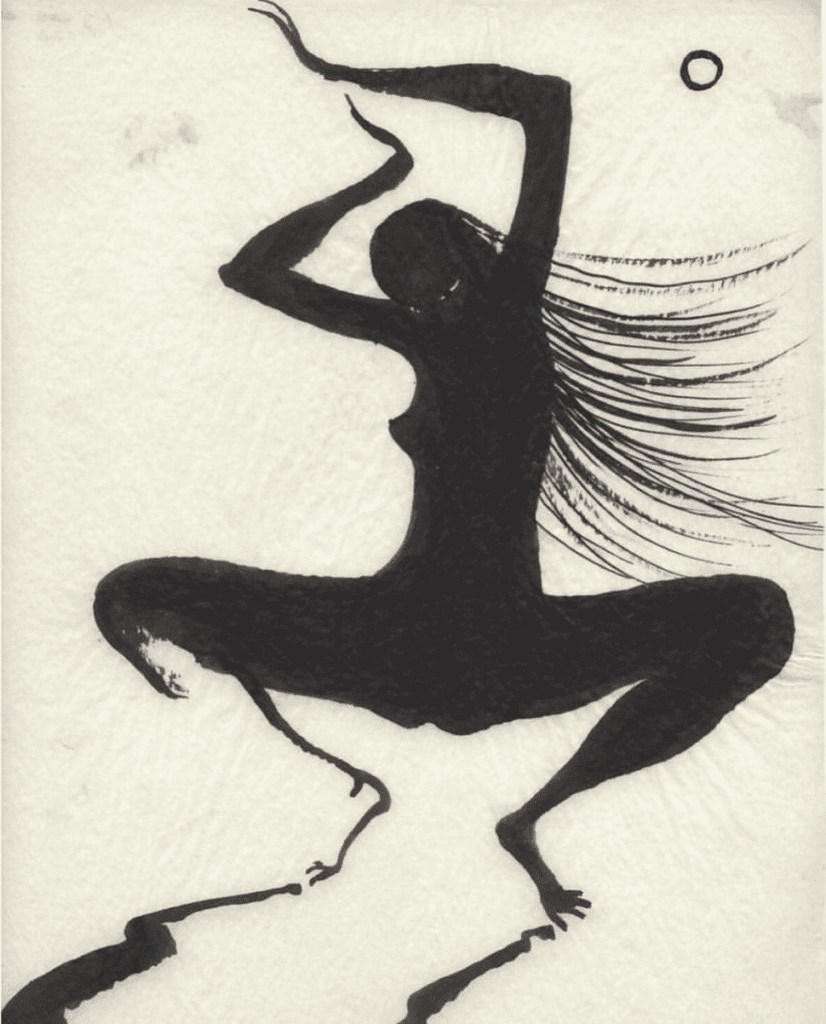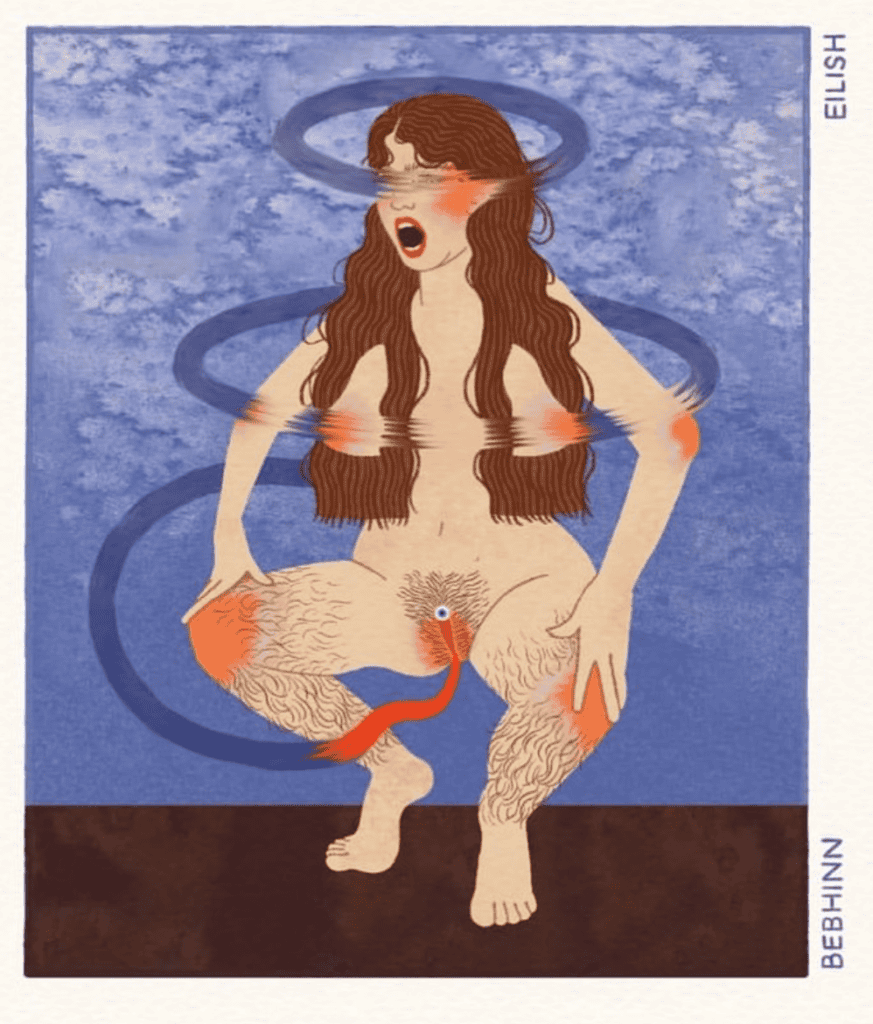What is menstrual denial?
Menstrual denial: the symptom of a culture that would rather overlook, dismiss, and suppress the deeper meaning of menstruation. A cultural gaslighting forged over decades. Menstrual denial is reinforced by period product advertisements which depict women rejoicing over their ability to hide and ignore their menstrual blood whilst wearing white. It is present when the main societal concern is to help women to carry on as ‘normal’ when menstruation occurs. It is behind the feminist rally to convince the world of the essential sameness of the female and male sex, and ‘anything you can do I can do bleeding’. And it is explicit in the design of birth control pills which suppress ovulation entirely, seemingly rendering menstruation obsolete.
Denial of cyclicity is a cultural phenomenon symptomatic of a society which seeks to override, overpower and overthink nature. It is a misunderstanding of the significance of menstruation physically, spiritually, psychologically and socially for the wellbeing of all people.

Is menstruation obsolete?
Menstruation is not just a physical process, but a psychological process. The hormonal activity that is responsible for menstruation have essential health benefits including and not limited to: strengthening the bones, reducing stress, regulating many physiological processes such as sleep, digestion, sexual response and the nervous system and reducing risk of osteoporosis and cancer. It even has a positive impact on our moods, choice of partner and discernment in social interactions.
Menstrual spirituality
Not only this, but each cycle works the psyche and consciousness, offering access to a deep psychological process of maturation, self development and visioning, which is highly valuable to the menstruator and her community. A teacher once told me that she had been denied entry into a plant medicine ceremony because she was menstruating. Rather than feeling outraged ‘how dare I be excluded?!’, she felt empowered by this. Menstruating women can access a deeply meditative state of consciousness similar to that of a shaman. Her involvement in the ceremony would have interfered with the shaman’s work. She was politely asked to come again another time. This story dissolved my Western Feminist policy of inclusion at all costs because I deeply resonated with some essential truth within it.
It is thought that all shamans who guided early societies were women, due to their capacity for prophecy and visions made accessible during the trancelike states available in menstruation. This is the deeper part of what we deny when we insist that ‘no more embarrassing stains’ and a hot water bottle at work is the height of an ‘empowered period’. Cultural menstrual denial manifests as a feeling of profound and unexplained loss for those who menstruate.

Menstrual denial and rest
Another facet of menstrual and cyclical denial is the simple lack of acknowledgement of the physical need to rest during menstruation. As Kelly Garza says, one of the key care points of healthy menstruation is to rest the physical body as much as possible. Pelvic tension caused by being active, upright and in constant motion can interfere with the mechanisms involved in the release of the uterine lining. Simple, slow movement aids menstruation. The type of movement of an everyday work day, however, creates stress on the body that can have repercussions including pain. Capitalism leaves little room for the energetic rhythm that works in a cyclical, rather than linear, pattern.
How does cultural menstrual denial affect individuals?
Many of us dread the premenstrual phase for its uncomfortable emotions, premenstrual and menstrual depression and unwanted symptoms, and menstruation due to pain and inconvenience. During menstruation itself menstrual denial can manifest as an inability to rest, to ask for support to rest, or even an aversion to resting itself. It can feel like tension and boredom during menstruation and even contribute to menstrual pain.
How does menstrual denial contribute to menstrual pain?
When we cycle with the awareness that at menstruation we can access these visioning states of consciousness, and as a powerful opportunity to gently reset the balance of our physical and emotional state, we approach the rest of our cycle completely differently. How different we might feel during our luteal phase, the two(ish) weeks before menstruation, if we felt confident in the knowing that we were soon to be met by a well-supported menstruation, made dignified by a culture of menstrual affirmation?
When we approach menstruation as an unnecessary burden rather than something of value and spiritual significance, it stands to reason we would approach menstrual pain in the same way. Pain expert Dr Sean Mackey explains that when individuals assign meaning or purpose to their pain, it can dramatically alter their perception and experience of it. Menstruation approached as meaningful could therefore have the potential to unlock fresh perspectives and inner guidance towards the healing of menstrual pain.
What is the alternative to menstrual denial?
This denial of cyclicity causes hormonal imbalances, chronic stress, rage, anxiety and unexplained grief. As Alexandra Pope and Sjanie Hugo Wurlitzer say: “Our whole society is geared towards menstrual denial, and our symptoms have a way of disrupting or interrupting the status quo.” Every step we take towards lifting up, acknowledging, dignifying and affirming the menstrual cycle in its entirety, and being open about the symptoms we have, is the antidote to the cultural gaslighting we have all been suffering. If you feel outrage at having to go against your own soul, know that you are not alone. A culture of menstrual affirmation begins with each of us.
A culture of menstrual affirmation is one which dignifies the cyclical process and restores the experience of menstruation as sacred and meaningful.

References
George, D. (1992). Mysteries of the Dark Moon: The Healing Power of the Dark Goddess. New York: HarperCollins.
Pope, A. and Wurlitzer, S.H. (2017). Wild Power: Discover the Magic of Your Menstrual Cycle and Awaken the Feminine Path to Power. Novato, CA: Hay House.
